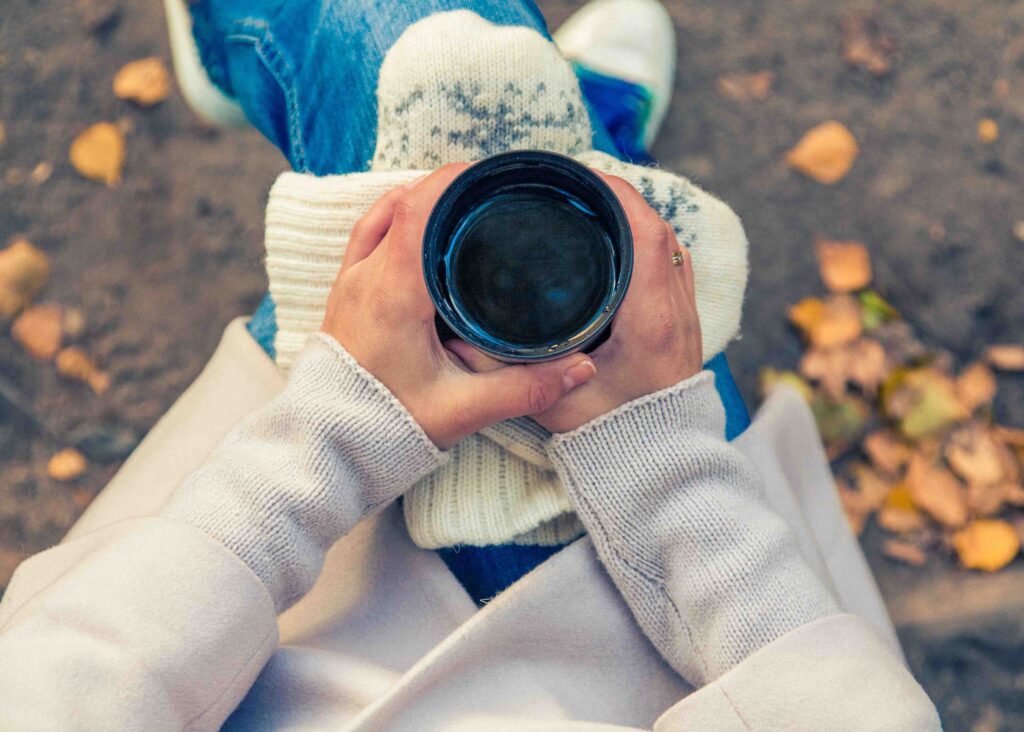Fighting the Winter Blues?

Dark mornings, darker evenings, and chilly grey days in between mean winter is here, and with the cold comes the winter blues. Low mood, feeling more down than usual, less energised, less interested in life and its activities are fairly common symptoms of this winter depression.
The exact cause of SAD (Seasonal Affective Disorder) is not fully understood, but it is thought to be linked to reduced exposure to sunlight during the shorter days of the year. It is a type of depression that comes and goes in a seasonal pattern, affecting more women than men and it tends to decrease with age.
What is happening in the body?
Light stimulates a part of the brain called the hypothalamus which controls mood, appetite and sleep. The lack of light is thought to affect:
- The melatonin production : The hypothalamus sends a message to several of the body’s glands, including the pineal gland which produces less of the hormone melatonin.
- The serotonin production : Serotonin is a neurotransmitter that plays a key role in a lot of body functions: from regulating the body temperature and mood, sleep, digestion to wound healing, bone health, blood clotting and sexual desire. When Serotonin levels are unbalanced, it can cause physical and psychological health issues. Your brain needs serotonin to make melatonin.
- Your circadian rhythm: During the winter months, some people produce amounts of melatonin that are higher than normal, resulting in SAD symptoms such as sleepiness and low energy levels. Serotonin and dopamine also play a role in the quality of your sleep : how well and how long you sleep. This is all connected and any imbalance would disturb your sleep-wake cycle.
What can you do to fight the winter blues?
- Get outdoor, see the light : Walk everyday during day time (even if only for 20 minutes), this is your own natural light treatment. Lunch time is ideal to maximise the light exposure. Try to spend time in nature : wrap yourself up, put your boots on and go for long walks when possible.
- Eat healthily: Healthy eating is often the answer to many ailments. With a good diet full of fruits and vegetables, you replenish your body with all the vitamins & minerals it needs to thrive.
- Keep active : It could be going for a weekly walk in nature, joining friends for a yoga class, taking up a new hobby … Don’t stay put and wait for the winter to pass… it will only seem longer, get yourself out there, investigate what’s going on around you, things to see/ things to do, ask your friends out!
- Keep warm : When your body is cold, it requires more energy to do the usual activities, which is more demanding on the body and gets you tired more easily. Wrap up well when you leave the house, but also keep your body extremities warm when in the house : very warm socks (or 2 pairs), warm drinks to warm up hands and body, hot water bottles can be your best friends on these cold months. Remember it is harder to warm up once cold., so try to stay warm, move around, get the blood moving in the body, it is the best way to warm up.
- See your friends and family : Don’t isolate yourself, make plans, make the conscious effort to meet with friends and/or visit family. Not only that will help cheering you up but they will also enjoy it and happiness tends to be contagious.. make the most of it!
- Talk it through : Sharing your struggles with loved ones will make them understand if your behaviour is not quite as it used to be. Don’t close yourself to the rest of the world, talking it through is an important part of the recovery process. Depending on the nature and severity of your symptoms, talking therapies such as cognitive behavioural therapy (CBT) can be very helpful too.
Which supplements do I need?
Be careful with interactions in between supplements and any other remedies you are taking (may they be natural, prescribed or over the counter). Having an expert overlooking what you are doing is key in keeping you safe and making sure you are feeding your body with the right nutrients it needs to work efficiently and reach equilibrium.
- Vitamin D : With not enough exposure to sunshine comes low levels of vitamin D. You can replenish part of your Vitamin D needs with food (oily fish, eggs, fortified milk and breakfast cereals) but also taking a Vitamin D supplement during the winter times is highly recommended.
- Replenish your serotonin levels : We can’t find serotonin directly in the food we eat, but we can synthesise it from the amino acid tryptophan. You can find it in high protein foods such as : meat, fish, eggs, cheese, poultry and tofu, oats, nuts & seeds. If you are not eating enough of the food items listed above and suffering from SAD, you can consider doing a course a supplementation of whether L-Tryptophan or 5 HTP depending on your presenting symptoms. Serotonin is mainly fabricated in the gut, another valid reason to look after your gut health and maybe go for some probiotics to help along the way… For every individual case, your naturopath can guide you on how to tweak your diet to give your body what it needs to work as efficiently as possible.
- Herbs : Nervous system supporting herbs such as oat straw, chamomile, lavender, lemon balm, st john’s wort, saffron or ashwagandha in herbal teas or latte powders can also help your body going through this dark phase. You should seek for professional guidance to avoid herb/drug interactions (especially if considering St John’s wort). Aromatherapy can also be a very useful tool to improve mood, promote relaxation and ease anxiety. Essential oils such as Bergamot, Lavender, Ylang ylang, grapefruit, lemon or rosemary. Your naturopath can make you a blend adapted to your personality and symptoms to massage on key parts of body, inhale through the day or diffuse in your room.
What about light therapy?
A good way of boosting your serotonin production (apart from a diet rich in tryptophan) is light therapy : Try to get 15 to 20 minutes of sunlight each day to boost not only serotonin levels but also your vitamin D levels. If you live in an area where you can’t get natural sunlight, you can consider using light therapy lamps to get that needed daily sunlight. For the full benefits it is still recommended to follow an healthy diet and exercise regularly.
Book your first free call now.
No Comments